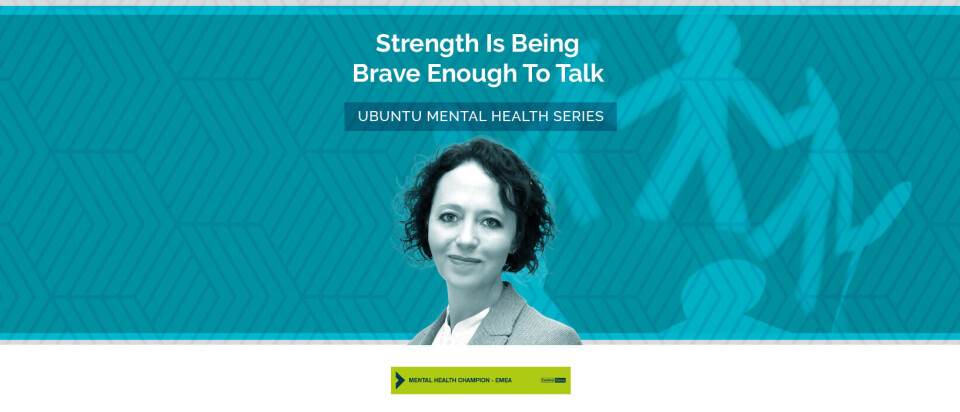Copyright : Re-publication of this article is authorised only in the following circumstances; the writer and Africa Legal are both recognised as the author and the website address www.africa-legal.com and original article link are back linked. Re-publication without both must be preauthorised by contacting editor@africa-legal.com
Strength is sharing your pain

Kimlynne Olivier, Associate Director for Control Risks, has seen firsthand the tragic consequences of mental health breakdowns. She shared some insights with Africa Legal on how we can avoid those.
I read a quote by an unknown author recently saying “Can we please stop associating strength with someone’s ability to smile through tears and suffer in silence? Strength is being brave enough to talk about what is hurting you on the inside.” This stopped me in my tracks. In January of this year a dear friend’s husband committed suicide. He was a proud man. A father. A son. A husband and a friend to many. He carried a silent burden, but not so silent.
As the drama unfolded over the last few months, I had the opportunity to reflect on his life from an outside perspective. When we broke the news to his employers, they were shocked. “He was such a lovely, reliable, and helpful man. He will be sorely missed.” His mentor said the most shocking, yet not shocking, thing: “I knew he was troubled, and he had problems with which he was struggling. I did not realise how serious it was.”
I spoke to his wife and brothers. In the last year of his life he was stressed, paranoid, and occasionally displayed frantic behaviours. His mum was vaguely aware, but felt that he was a grown man and would be offended if she stepped in. His friends thought it was pandemic related. His colleagues thought it was marriage related. So many people saw him unravel, yet no one felt equipped to help. Somehow no one realised the extent of the mental health breakdown. Because he never said anything. Because men are expected to be brave, unemotional, and strong.
Statistics show that more men will commit suicide or fall into self-destructive patterns and behaviours than seek professional help for their mental health. How do we intervene and how do we destigmatise mental health issues, particularly among men? What qualification or tools do we need to help our friends and loved ones?
I reflect on the last two years. In South Africa something like counselling is perceived as being only for the rich or well off. If you are a church member you could speak to your spiritual leaders, but how many men do? Companies provide support in the form of emergency numbers you could call, or websites you could surf or material you could read up on.
But once you are in that mindset it is hard, and you can barely see your way through the day and your demons, let alone reach out to a call centre number or an online portal. Data to surf the net costs money, and call centre numbers are not always free from mobile phones. Church leaders might judge, and friends might drop you like hot cakes if they realise you are not as strong as you want them to believe.
During the pandemic, and even to some extent now, counselling was only available online or via Teams or Skype. At a price. In South Africa, the average person living in an informal settlement (as my friend’s husband was) has never heard of Teams or Skype, and most definitely does not have the money for a counsellor.
So back to the question I keep asking: What can we do, what qualifies us as support, how do we intervene and how do we prevent this from happening to another friend, colleague, or family member?
We talk and we reduce the stigma. Change our narrative. Encourage culturally competent therapists who are not just available to the rich or the people with private medical aid. Talk to your loved ones. Do not look the other way or avoid them because you feel awkward or uncomfortable. Encourage, support and prevent further decline. Help them find help. Show our young boys that “Strength is being brave enough to talk about what’s hurting you on the inside.”
To join Africa Legal's mailing list please click here
